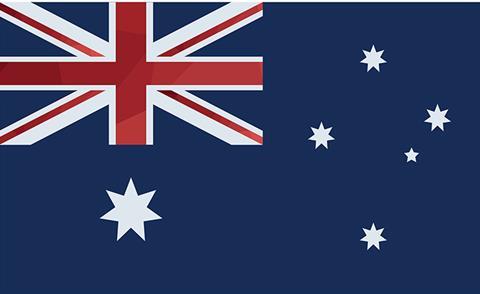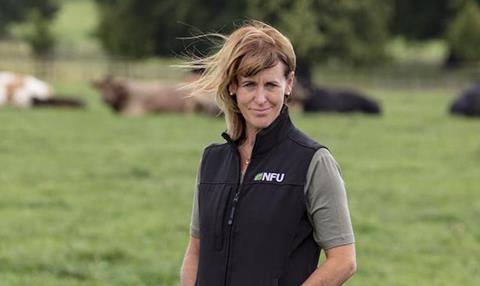It has emerged that the trade deal between the UK and Australia, announced this week, could lead to an immediate nearly ten-fold increase in tariff-free imports of Australian beef, and a potential doubling of lamb imports in the first year of the deal.

The overall changes to Australia’s tariff-free access to the UK market are phased in over 10 years, but Australian Government sources have confirmed that major increases in the quotas for red meat will take place ‘immediately.’
According to figures released on the Australian Government website the Tariff Rate Quota for beef – the amount of Australian product which the UK will accept tariff-free – will rise from the current 3,761 tonnes to 35,000 tonnes straight away, subsequently rising to 110,000 tonnes over ten years.
Currently Australia can export 13,335 tonnes of lamb and sheepmeat to Britain tariff-free. Under the deal that will rise to 25,000 tonnes immediately, and gradually to 75,000 tonnes by 2031.
Hybu Cig Cymru – Meat Promotion Wales (HCC) chief executive Gwyn Howells said: “The figures from the Australian Government suggest that, under this deal, the country will have an immediate right to export almost ten times as much beef, and twice as much lamb, to the UK as it does now.
“This news will do little to calm fears in our domestic livestock sector concerning the need to keep a level playing field. We produce to high standards in terms of welfare, not using hormones and other supplements used in some production systems overseas.
“We also produce beef and lamb very sustainably. Increasing our dependence on foreign produce risks importing food with a higher carbon footprint, which cannot be positive for our commitments on climate change or our food security.”
NFU unclear as yet on full details
Responding to the announcement of the Agreement in Principle, NFU president Minette Batters said: “We have been clear about our concerns over the potential impact of trade deals that completely eliminate all tariffs on imports from the biggest agricultural exporters in the world.
“While details remain very thin on the ground, it appears that the agreement will include important safeguards that attempt to strike a balance between liberalising trade and supporting UK farm businesses, as well as a reasonable time period to allow UK farmers to adjust to the new trading environment.
"We will need to know more about any provisions on animal welfare and the environment to ensure our high standards of production are not undermined by the terms of this deal."
“We await further details of the agreement to understand whether these safeguards are sufficient, and in particular that they can be deployed effectively should imports rise to an unmanageable level leading to significant market disruption.
“I am concerned that this announcement appears to have made no mention of animal welfare and environmental standards. While the government has previously been keen to highlight how our Free Trade Agreements will uphold our high standards of food production, there has always been a question mark over how this can be achieved while opening up our markets to food produced to different standards. We will need to know more about any provisions on animal welfare and the environment to ensure our high standards of production are not undermined by the terms of this deal.

“The ultimate test of this trade deal will be whether it contributes to moving farming across the world onto a more sustainable footing, or whether it instead undermines UK farming and merely exports the environmental and animal welfare impact of the food we eat.
“It is critical that the government now engages with industry on the details of the deal as soon as possible and that Parliament is involved much more during the final stages of the negotiations to ensure it has sufficient oversight of the agreement. This means providing both Houses with the details well in advance of ratification alongside a proper impact assessment so Parliament can ensure it is satisfied that this deal is right for all of the UK - consumers, workers, farmers and other businesses alike.
“The Trade and Agriculture Commission will have a vital role to play in assessing these aspects of the deal in the near future and it is crucial it is up and running soon so that it can provide its report to Parliament on the impact of the deal in good time ahead of ratification.
“This trade deal, and those that follow it, will, I hope, provide UK farmers with opportunities to export more great British food abroad, although we should be realistic about the extent of those prospects with large net-exporters such as Australia. We should also be clear about the likelihood that these deals will mean a significant increase in competition in our domestic agricultural markets.
“The UK Government must step up and work with the industry in improving its competitiveness, through domestic policies that support productivity and sustainable farming, and through export policies that upscale our ability to open and maintain overseas markets, something the UK has been poor at in recent years compared to foreign competitors.
“Looking ahead, it is vital that the UK Government approaches its other negotiations with countries like New Zealand, USA, Canada and Mexico - all major agricultural producers and exporters - on its own terms and ensures that future deals balance access to UK agricultural markets with at least the same level of opportunities for British agri-food exports. The cumulative impact of these deals could have a major impact on UK farming, and handled badly it may become impossible for some of our farm businesses to continue to compete.”
Wider collaboration needed says Scotland
NFU Scotland president Martin Kennedy said: “As detail on the proposed terms of agreement around an Australian trade deal emerge, deep concerns will remain about its impact on Scotland’s farmers, crofters and our wider food and drink sector.
“Under the proposed deal, there is to be a cap on tariff-free imports from Australia for 15 years. That is merely a slow journey to the Australians getting unfettered access to UK markets and with no guarantees that the promises of other safeguards will address the fact that very different production systems are permitted in Australia compared to here in the UK.
"That is merely a slow journey to the Australians getting unfettered access to UK markets and with no guarantees that the promises of other safeguards will address the fact that very different production systems are permitted in Australia compared to here in the UK."
“The deal has not been afforded the appropriate level of scrutiny and consultation and has been agreed in advance of the promised statutory Trade and Agriculture Commission being established to scrutinise such deals. Parliamentarians must be given the opportunity to examine this deal, and any future deals, with Government carrying out a detailed impact assessment on what it may mean for the agriculture and food sectors.
“An FTA with Australia, and the way it has been agreed without proper industry consultation or scrutiny, sets a dangerous precedent for other Free Trade Agreements, including those with other major farming and food producing nations such as New Zealand, Canada, Mexico and the United States.

“The cumulative impact of all such trade deals on extremely vulnerable sectors such as farming, food and drink could be hugely destructive.
“We are ambitious to identify and grasp opportunities to build our industry and wider economy and our reputation for world class produce. Trade deals could be an enabler of this, but it is going to require collaboration between UK Government and the industry; collaboration which does not exist at present.”
NSA has "numerous concerns"
The National Sheep Association also said it had numerous reasons for concern, including the potential for increased imports of lamb produced using farming methods that would not be legal in the UK, compromising the world-leading high standards set out by the UK Government, along with the precedent this deal is likely to set for future deals, such as US, India, and Canada.

NSA chief executive, Phil Stocker commented: “We are on the verge of British farming and food being changed irreversibly with Cabinet making decisions without proper Parliamentary scrutiny and without promises of a new Trade and Agriculture Commission being fulfilled. We have promise after promise that Government would not allow products to be imported to the UK that didn’t meet our increasingly high standards, and we know the direction of travel is to combat climate change and nature recovery as well as meet higher animal welfare standards.
"Talking about ‘equivalence’ of standards is not good enough, if practices such as long transport journeys or the transportation of animals in hot or cold temperatures are not acceptable here then why are they acceptable in Australia?"
“There is absolutely no benefit in UK farmers being led in this direction, creating premium markets for niche products in wealthy parts of the world, while increasingly feeding our people with products that couldn’t be produced here. Talking about ‘equivalence’ of standards is not good enough, if practices such as long transport journeys or the transportation of animals in hot or cold temperatures are not acceptable here then why are they acceptable in Australia? UK sheep farmers make efforts to deal with fallen stock correctly and ensure the most reliable traceability and environmental protection. Of course, certain procedures like mulesing (the process of removing folds of skin from the tail area of a sheep, intended to reduce fly strike) would not be tolerated here. Offshoring these issues is not ethical or honest. NSA has said for a long time that it fears the UK sheep sector being the sacrificial lamb for benefit of other industries and that is exactly what looks likely to happen.
“The fact that the Government has indicated there will be some protection by a cap on tariff-free imports for 15 years, using tariff rate quotas and other safeguards brings little solace, and the question should be asked whether we want our food systems to go in this direction now or at any time in the future.”
NSA is now urging the Government to share more detail and also to properly commit to proper and early Parliamentary and Trade and Agriculture Commission scrutiny surrounding the deal. The Association urges against rushing enthusiastically into what could be another Northern Ireland protocol situation where a deal is signed with problematic and devastating consequences realised later.
FDF gives a cautious welcome on behalf of wider food industry
Dominic Goudie, head of international trade, the Food and Drink Federation (FDF) said: “The UK and Australia are important trade partners when it comes to food and drink, with trade in our sector’s products worth more than £800 million in 2020. The FDF therefore welcomes the news that the UK has agreed broad terms of a trade deal with Australia.
“It is now vital that we know the detail of what has been agreed to help businesses understand and begin to prepare for the new terms of trade. Food and drink manufacturers will hope that this deal will remove burdensome and unnecessary barriers to trade that will provide a timely boost for our industry’s post-Covid recovery. The terms must also ensure that consumers have continued confidence that any agreement maintains the highest food safety and animal welfare standards.”
Speaking to the BBC's World at One programme, trade secretary Liz Truss said: "At the moment there are extremely small quantities of Australian beef coming into the UK.
"So what we'd be looking at here is over time some of the EU imports [lost due to Brexit] being replaced by Australian imports."
Truss indicated she saw the deal as a precursor to a larger Asia-Pacific deal in the future: "We can see the evidence, that sales of British beef international are growing to places like Asia-Pacific and the United States because people want to buy high quality British products produced in a high animal welfare way.
The detailed figures on red meat exports permitted during the transition period are available from the Australian Government here.
This story was originally published on a previous version of the Meat Management website and so there may be some missing images and formatting issues.












